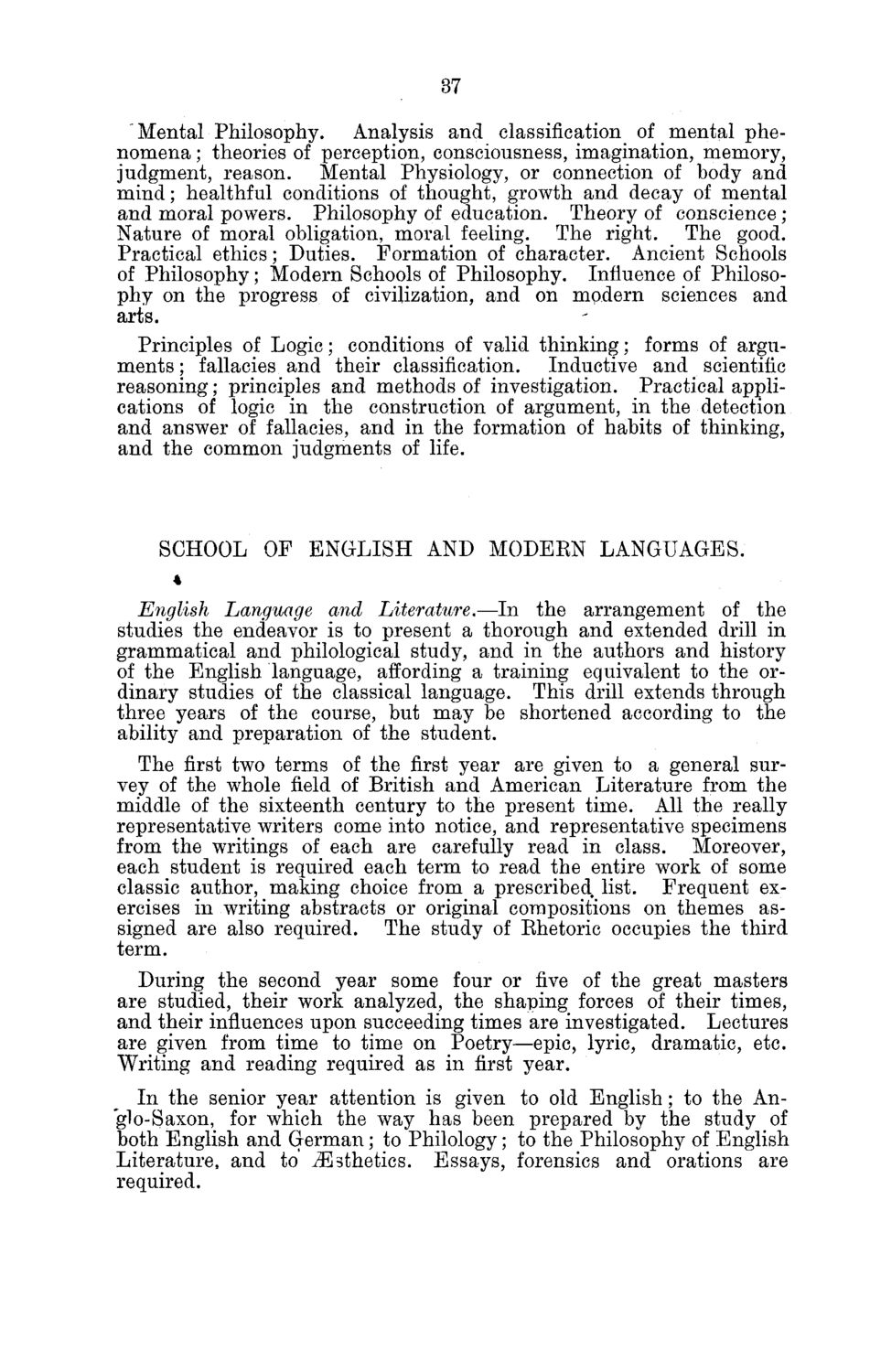| |
| |
Caption: Board of Trustees Minutes - 1880
This is a reduced-resolution page image for fast online browsing.

EXTRACTED TEXT FROM PAGE:
37 Mental Philosophy. Analysis and classification of mental phenomena ; theories of perception, consciousness, imagination, memory, judgment, reason. Mental Physiology, or connection of body and mind; healthful conditions of thought, growth and decay of mental and moral powers. Philosophy of education. Theory of conscience ; Nature of moral obligation, moral feeling. The right. The good. Practical ethics; Duties. Formation of character. Ancient Schools of Philosophy; Modern Schools of Philosophy. Influence of Philosophy on the progress of civilization, and on modern sciences and arts. Principles of Logic; conditions of valid thinking; forms of arguments ; fallacies and their classification. Inductive and scientific reasoning; principles and methods of investigation. Practical applications of logic in the construction of argument, in the detection and answer of fallacies, and in the formation of habits of thinking, and the common judgments of life. SCHOOL OF ENGLISH AND MODEEN LANGUAGES. English Language and Literature.—In the arrangement of the studies the endeavor is to present a thorough and extended drill in grammatical and philological study, and in the authors and history of the English language, affording a training equivalent to the ordinary studies of the classical language. This drill extends through three years of the course, but may be shortened according to the ability and preparation of the student. The first two terms of the first year are given to a general survey of the whole field of British and American Literature from the middle of the sixteenth century to the present time. All the really representative writers come into notice, and representative specimens from the writings of each are carefully read in class. Moreover, each student is required each term to read the entire work of some classic author, making choice from a prescribed, list. Frequent exercises in writing abstracts or original compositions on themes assigned are also required. The study of Khetoric occupies the third term. During the second year some four or five of the great masters are studied, their work analyzed, the shaping forces of their times, and their influences upon succeeding times are investigated. Lectures are given from time to time on Poetry—epic, lyric, dramatic, etc. Writing and reading required as in first year. In the senior year attention is given to old English; to the Anglo-Saxon, for which the way has been prepared by the study of both English and German; to Philology; to the Philosophy of English Literature, and to ^Esthetics. Essays, forensics and orations are required.
| |